#Climate crisis
Text
Hey, happy Earth Day! Who wants to talk about climate change?
Yeah, okay, fair, I kinda figured the answer to that would be "ugh do we have to?" What if I told you I have good news though? Good news with caveats, but still good news.
What if I told you that since the Paris Agreement in 2015, we've avoided a whole degree celsius of global warming by 2100, or maybe more?

Current projections are 2.7C, which is way better than the 3-5C (with a median of 3.7C) we were expecting in 2015. It's not where we want to be - 1.5C - but it is big, noticeable progress!
And it's not like we either hit 1.5C and avoid all the big scary consequences or fail to hit 1.5C and get all of them - every tenth of a degree of warming we avoid is going to prevent more severe problems like extreme weather, sea level rise, etc.
This means that climate change mitigation efforts are having a noticeable impact! This means a dramatically better, safer future - and if we keep pushing, we could lower the amount of global warming we end up with even further. This is huge progress, and we need to celebrate it, even though the fight isn't over.
It's working. Keep going.
#hylian rambles#climate change#climate crisis#environmental issues#global warming#hope#hope for the future#hope for the planet#earth day
3K notes
·
View notes
Text
#renewable power#renewable energy#greenhouse gas emissions#green technology#green energy#environmentalism#good news#science#environment#nature#climate change#climate crisis
139 notes
·
View notes
Text
Climate change caused by CO2 emissions already in the atmosphere will shrink global GDP in 2050 by about US$38 trillion, or almost a fifth, no matter how aggressively humanity cuts carbon pollution, researchers said Wednesday.
But slashing greenhouse gas emissions as quickly as possible remains crucial to avoid even more devastating economic impacts after mid-century, they reported in the journal Nature.
Continue Reading.
62 notes
·
View notes
Text

A.2.4 Are anarchists in favour of “absolute” liberty?
No. Anarchists do not believe that everyone should be able to “do whatever they like,” because some actions invariably involve the denial of the liberty of others.
For example, anarchists do not support the “freedom” to rape, to exploit, or to coerce others. Neither do we tolerate authority. On the contrary, since authority is a threat to liberty, equality, and solidarity (not to mention human dignity), anarchists recognise the need to resist and overthrow it.
The exercise of authority is not freedom. No one has a “right” to rule others. As Malatesta points out, anarchism supports “freedom for everybody … with the only limit of the equal freedom for others; which does not mean … that we recognise, and wish to respect, the ‘freedom’ to exploit, to oppress, to command, which is oppression and certainly not freedom.” [Errico Malatesta: His Life and Ideas, p. 53]
In a capitalist society, resistance to all forms of hierarchical authority is the mark of a free person — be it private (the boss) or public (the state). As Henry David Thoreau pointed out in his essay on “Civil Disobedience” (1847)
“Disobedience is the true foundation of liberty. The obedient must be slaves.”
#faq#anarchy faq#revolution#anarchism#daily posts#communism#anti capitalist#anti capitalism#late stage capitalism#organization#grassroots#grass roots#anarchists#libraries#leftism#social issues#economy#economics#climate change#climate crisis#climate#ecology#anarchy works#environmentalism#environment#solarpunk#anti colonialism#mutual aid#cops#police
38 notes
·
View notes
Text

12-month running average for global average air temperature has just surpassed 1.6C for the first time.
25 notes
·
View notes
Text
#thanks joe#vote blue#vote democrat#vote biden#climate action#democrats#environmental protection#vote blue 2024#young voters#democracy#social democracy#climate change#democratic socialism#democrats now socialism later#climate crisis#vote blue to save democracy#green new deal
19 notes
·
View notes
Text
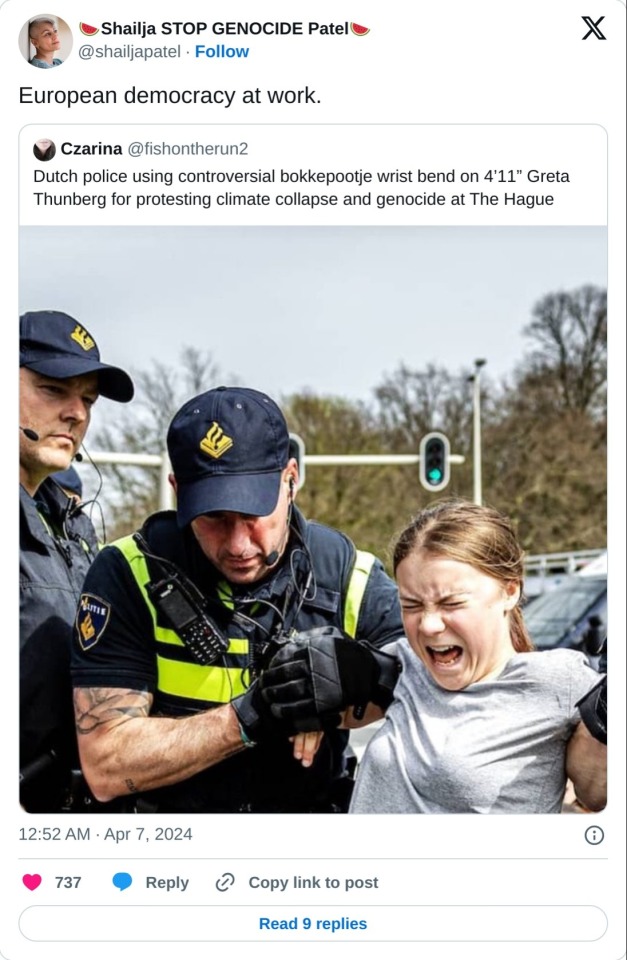
"No climate justice on occupied land"
#feminist#social justice#free palestine#settler violence#settler colonialism#genocide#climate justice#climate action#climate crisis#climate change#greta thunberg#europe#politics#the hague#netherlands#global news
17K notes
·
View notes
Text

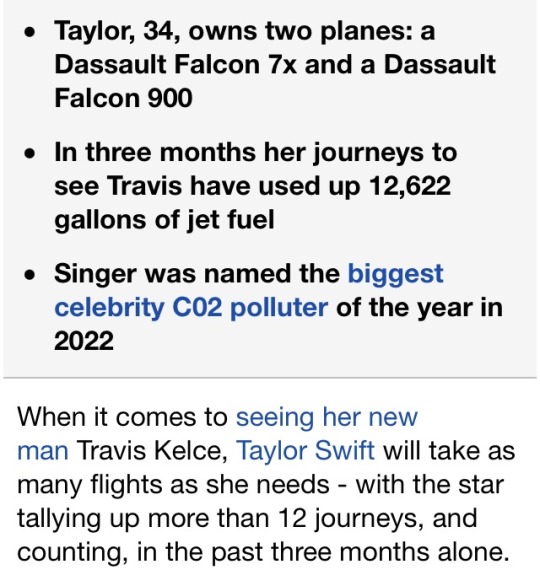



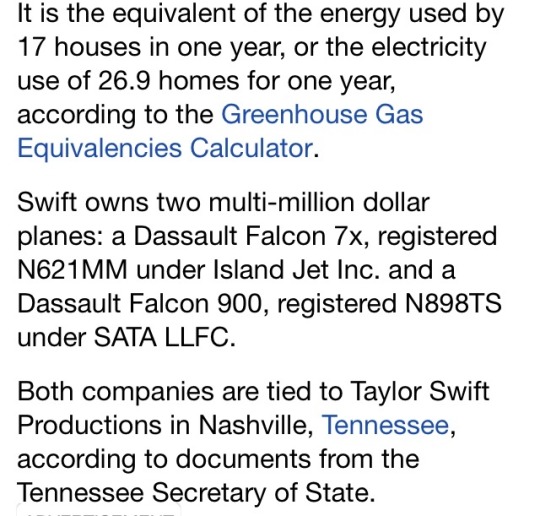
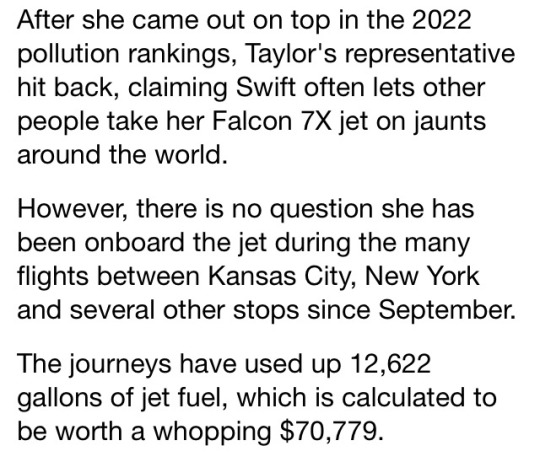


imagine being that fucking rich and that fucking careless.
#anti taylor swift#taylor swift is a climate criminal#taypollution#carbon emissions#co2#the goth punk billionaire#climate change#climate crisis
36K notes
·
View notes
Text
No paywall version here.
"Two and a half years ago, when I was asked to help write the most authoritative report on climate change in the United States, I hesitated...
In the end, I said yes, but reluctantly. Frankly, I was sick of admonishing people about how bad things could get. Scientists have raised the alarm over and over again, and still the temperature rises. Extreme events like heat waves, floods and droughts are becoming more severe and frequent, exactly as we predicted they would. We were proved right. It didn’t seem to matter.
Our report, which was released on Tuesday, contains more dire warnings. There are plenty of new reasons for despair. Thanks to recent scientific advances, we can now link climate change to specific extreme weather disasters, and we have a better understanding of how the feedback loops in the climate system can make warming even worse. We can also now more confidently forecast catastrophic outcomes if global emissions continue on their current trajectory.
But to me, the most surprising new finding in the Fifth National Climate Assessment is this: There has been genuine progress, too.
I’m used to mind-boggling numbers, and there are many of them in this report. Human beings have put about 1.6 trillion tons of carbon in the atmosphere since the Industrial Revolution — more than the weight of every living thing on Earth combined. But as we wrote the report, I learned other, even more mind-boggling numbers. In the last decade, the cost of wind energy has declined by 70 percent and solar has declined 90 percent. Renewables now make up 80 percent of new electricity generation capacity. Our country’s greenhouse gas emissions are falling, even as our G.D.P. and population grow.
In the report, we were tasked with projecting future climate change. We showed what the United States would look like if the world warms by 2 degrees Celsius. It wasn’t a pretty picture: more heat waves, more uncomfortably hot nights, more downpours, more droughts. If greenhouse emissions continue to rise, we could reach that point in the next couple of decades. If they fall a little, maybe we can stave it off until the middle of the century. But our findings also offered a glimmer of hope: If emissions fall dramatically, as the report suggested they could, we may never reach 2 degrees Celsius at all.
For the first time in my career, I felt something strange: optimism.
And that simple realization was enough to convince me that releasing yet another climate report was worthwhile.
Something has changed in the United States, and not just the climate. State, local and tribal governments all around the country have begun to take action. Some politicians now actually campaign on climate change, instead of ignoring or lying about it. Congress passed federal climate legislation — something I’d long regarded as impossible — in 2022 as we turned in the first draft.
[Note: She's talking about the Inflation Reduction Act and the Infrastructure Act, which despite the names were the two biggest climate packages passed in US history. And their passage in mid 2022 was a big turning point: that's when, for the first time in decades, a lot of scientists started looking at the numbers - esp the ones that would come from the IRA's funding - and said "Wait, holy shit, we have an actual chance."]
And while the report stresses the urgency of limiting warming to prevent terrible risks, it has a new message, too: We can do this. We now know how to make the dramatic emissions cuts we’d need to limit warming, and it’s very possible to do this in a way that’s sustainable, healthy and fair.
The conversation has moved on, and the role of scientists has changed. We’re not just warning of danger anymore. We’re showing the way to safety.
I was wrong about those previous reports: They did matter, after all. While climate scientists were warning the world of disaster, a small army of scientists, engineers, policymakers and others were getting to work. These first responders have helped move us toward our climate goals. Our warnings did their job.
To limit global warming, we need many more people to get on board... We need to reach those who haven’t yet been moved by our warnings. I’m not talking about the fossil fuel industry here; nor do I particularly care about winning over the small but noisy group of committed climate deniers. But I believe we can reach the many people whose eyes glaze over when they hear yet another dire warning or see another report like the one we just published.
The reason is that now, we have a better story to tell. The evidence is clear: Responding to climate change will not only create a better world for our children and grandchildren, but it will also make the world better for us right now.
Eliminating the sources of greenhouse gas emissions will make our air and water cleaner, our economy stronger and our quality of life better. It could save hundreds of thousands or even millions of lives across the country through air quality benefits alone. Using land more wisely can both limit climate change and protect biodiversity. Climate change most strongly affects communities that get a raw deal in our society: people with low incomes, people of color, children and the elderly. And climate action can be an opportunity to redress legacies of racism, neglect and injustice.
I could still tell you scary stories about a future ravaged by climate change, and they’d be true, at least on the trajectory we’re currently on. But it’s also true that we have a once-in-human-history chance not only to prevent the worst effects but also to make the world better right now. It would be a shame to squander this opportunity. So I don’t just want to talk about the problems anymore. I want to talk about the solutions. Consider this your last warning from me."
-via New York Times. Opinion essay by leading climate scientist Kate Marvel. November 18, 2023.
#WE CAN DO THIS#I SO TRULY BELIEVE THAT WE CAN DO THIS#WE CAN SAVE OURSELVES AND THE WORLD ALONG WITH US#climate crisis#united states#climate change#conservation#hope posting#sustainability#climate news#climate action#climate emergency#fossil fuels#global warming#environmentalism#climate hope#solarpunk#climate optimism#climate policy#earth#science#climate science#meteorology#extreme weather#renewable energy#solar power#wind power#renewables#carbon emissions#climate justice
33K notes
·
View notes
Text
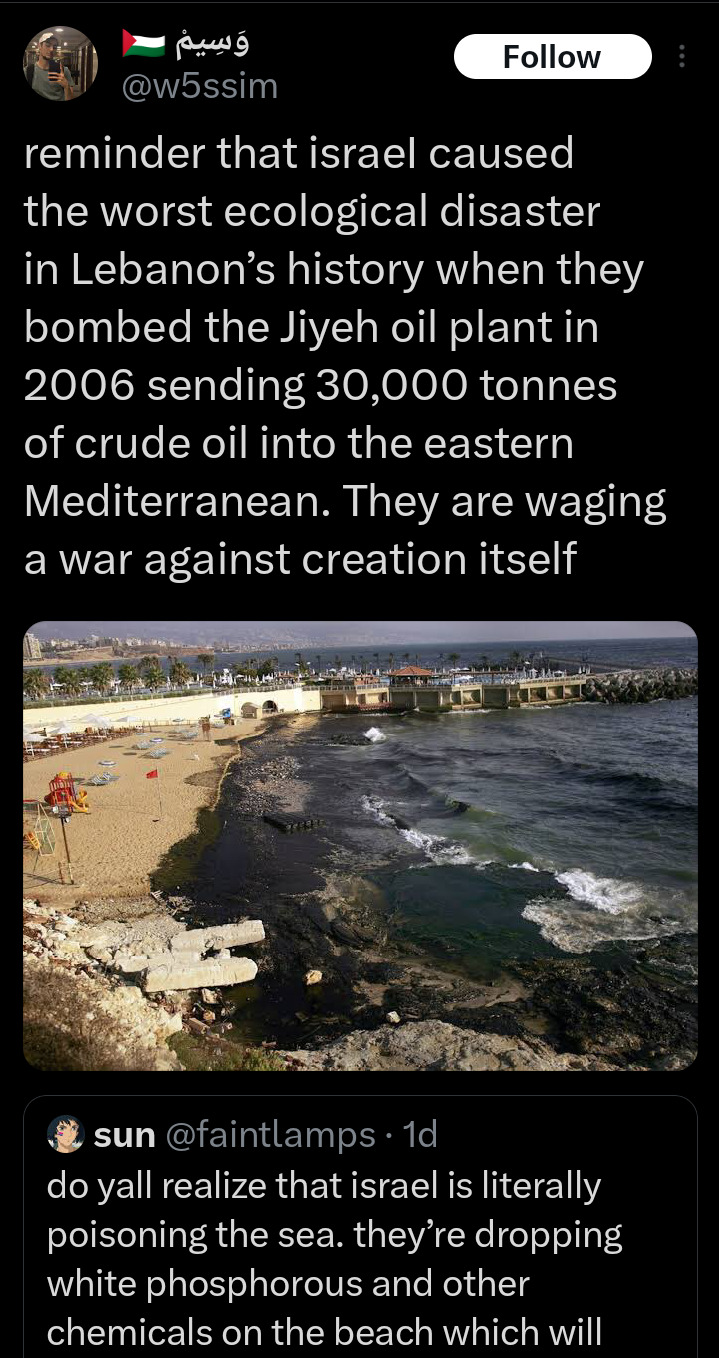
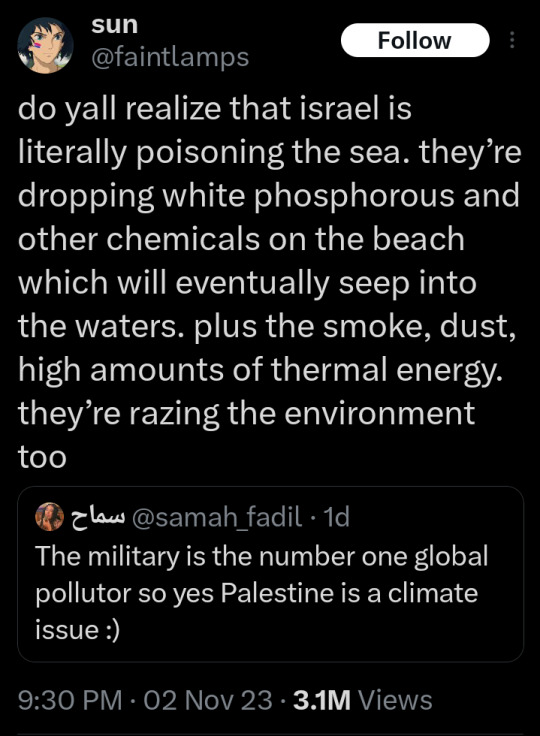
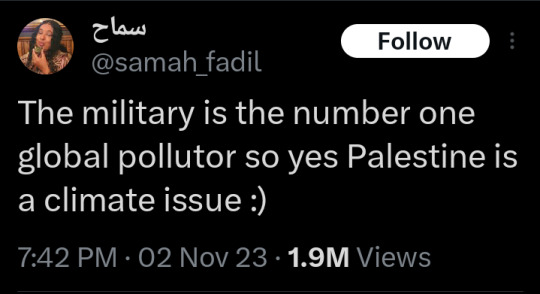

41K notes
·
View notes
Text
We need everyone's help right now to protect the rainforest and Indigenous People
The Amazon Rainforest is under a massive threat. I know you've heard this a million times, but this is different. There is a piece of legislation that will decimate the rights of Indigenous people of Brazil, who have been protecting the rainforest. It's unfathomably bad. It has majority support. And they're voting tomorrow.
As reported here, the Bill allows "the Brazilian government to find energy resources, set up military bases, develop strategic roads, and implement commercial agriculture on protected Indigenous tribal lands, without any prior discussion with the affected peoples."
The thing you can do—and I know this sounds overly simple—is sign this petition—and tell your friends to do the same: SIGN HERE.
As reported here, the Bill allows "the Brazilian government to find energy resources, set up military bases, develop strategic roads, and implement commercial agriculture on protected Indigenous tribal lands, without any prior discussion with the affected peoples."
Again, this bill has majority support. You may be wondering, why will a petition signed by people who don't live in Brazil make any difference? Because it will give those opposing it political air cover. It will show the world is with them.
But we need a LOT of signatures.
Please do this simple act and spread the word.
51K notes
·
View notes
Text
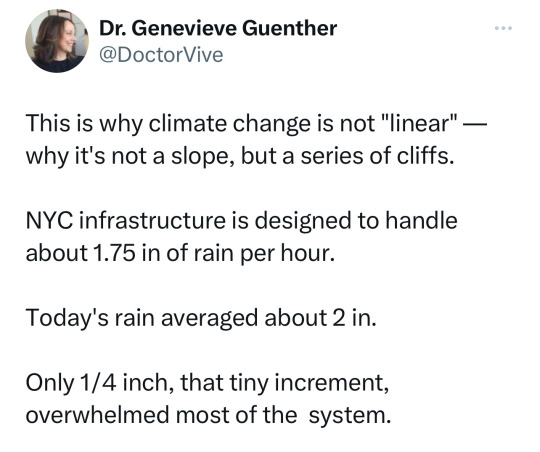


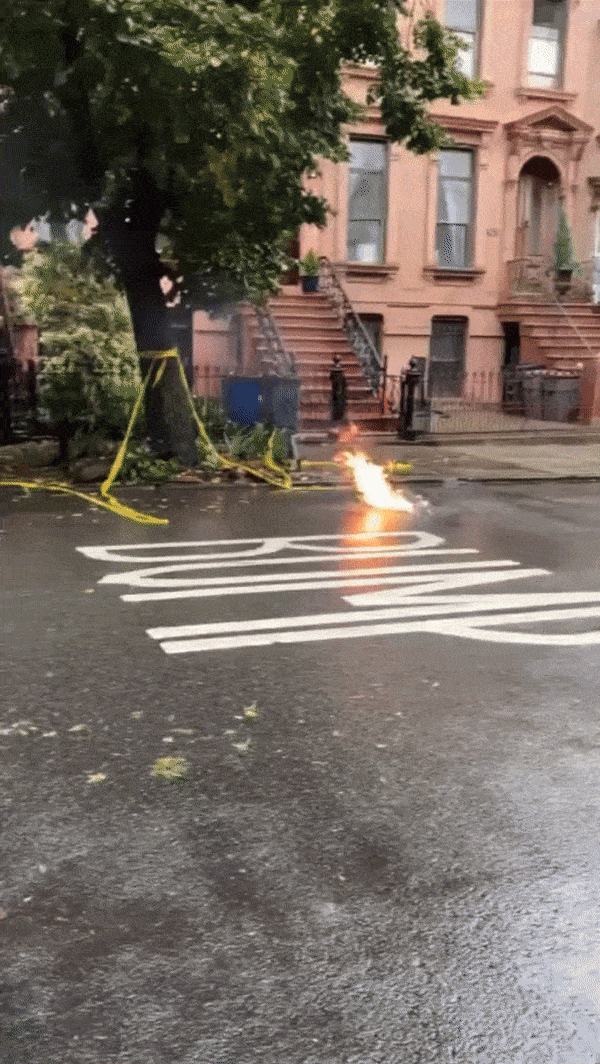

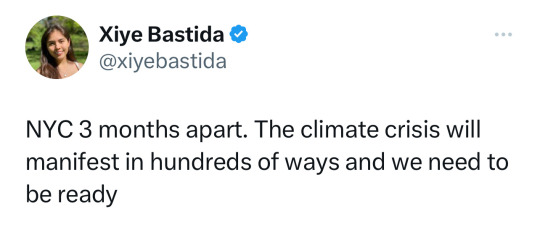
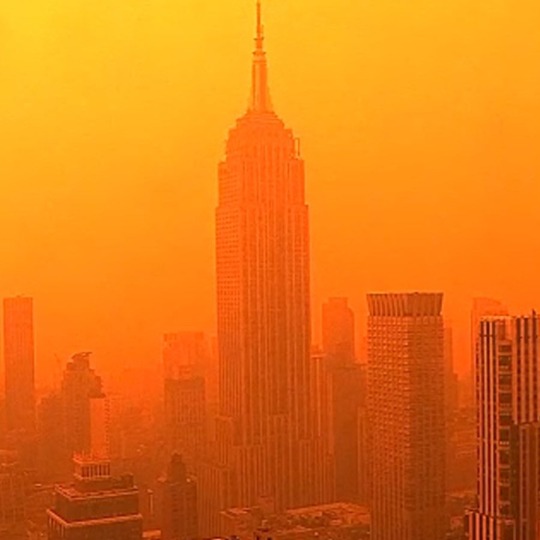
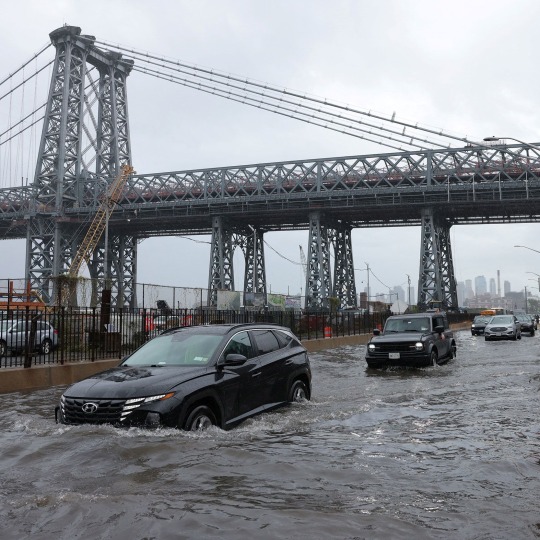
Nothing to see here, just fire + floods + climate change
#politics#climate change#climate crisis#global warming#nyc#nyc flooding#nyc floods#climate collapse#civil engineering
29K notes
·
View notes
Text
#good news#dams#rivers#europe#environmentalism#science#environment#nature#river dams#animals#conservation#climate change#climate crisis#fish#ecology
73 notes
·
View notes
Text
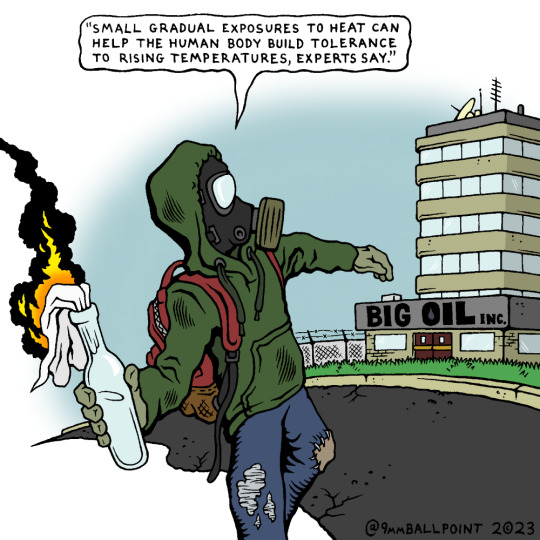
PS: for entertainment purposes only, of course
PPS: actual Washington Post quote
25K notes
·
View notes
Text
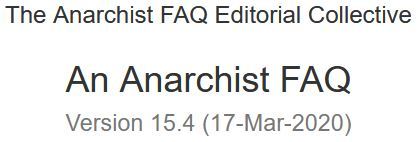
A.2.3 Are anarchists in favour of organisation?
Yes. Without association, a truly human life is impossible. Liberty cannot exist without society and organisation. As George Barrett pointed out:
“To get the full meaning out of life we must co-operate, and to co-operate we must make agreements with our fellow-men. But to suppose that such agreements mean a limitation of freedom is surely an absurdity; on the contrary, they are the exercise of our freedom.
“If we are going to invent a dogma that to make agreements is to damage freedom, then at once freedom becomes tyrannical, for it forbids men to take the most ordinary everyday pleasures. For example, I cannot go for a walk with my friend because it is against the principle of Liberty that I should agree to be at a certain place at a certain time to meet him. I cannot in the least extend my own power beyond myself, because to do so I must co-operate with someone else, and co-operation implies an agreement, and that is against Liberty. It will be seen at once that this argument is absurd. I do not limit my liberty, but simply exercise it, when I agree with my friend to go for a walk.
“If, on the other hand, I decide from my superior knowledge that it is good for my friend to take exercise, and therefore I attempt to compel him to go for a walk, then I begin to limit freedom. This is the difference between free agreement and government.” [Objections to Anarchism, pp. 348–9]
As far as organisation goes, anarchists think that “far from creating authority, [it] is the only cure for it and the only means whereby each of us will get used to taking an active and conscious part in collective work, and cease being passive instruments in the hands of leaders.” [Errico Malatesta, Errico Malatesta: His Life and Ideas, p. 86] Thus anarchists are well aware of the need to organise in a structured and open manner. As Carole Ehrlich points out, while anarchists “aren’t opposed to structure” and simply “want to abolish hierarchical structure” they are “almost always stereotyped as wanting no structure at all.” This is not the case, for “organisations that would build in accountability, diffusion of power among the maximum number of persons, task rotation, skill-sharing, and the spread of information and resources” are based on “good social anarchist principles of organisation!” [“Socialism, Anarchism and Feminism”, Quiet Rumours: An Anarcha-Feminist Reader, p. 47 and p. 46]
The fact that anarchists are in favour of organisation may seem strange at first, but it is understandable. “For those with experience only of authoritarian organisation,” argue two British anarchists, “it appears that organisation can only be totalitarian or democratic, and that those who disbelieve in government must by that token disbelieve in organisation at all. That is not so.” [Stuart Christie and Albert Meltzer, The Floodgates of Anarchy, p. 122] In other words, because we live in a society in which virtually all forms of organisation are authoritarian, this makes them appear to be the only kind possible. What is usually not recognised is that this mode of organisation is historically conditioned, arising within a specific kind of society — one whose motive principles are domination and exploitation. According to archaeologists and anthropologists, this kind of society has only existed for about 5,000 years, having appeared with the first primitive states based on conquest and slavery, in which the labour of slaves created a surplus which supported a ruling class.
Prior to that time, for hundreds of thousands of years, human and proto-human societies were what Murray Bookchin calls “organic,” that is, based on co-operative forms of economic activity involving mutual aid, free access to productive resources, and a sharing of the products of communal labour according to need. Although such societies probably had status rankings based on age, there were no hierarchies in the sense of institutionalised dominance-subordination relations enforced by coercive sanctions and resulting in class-stratification involving the economic exploitation of one class by another (see Murray Bookchin, The Ecology of Freedom).
It must be emphasised, however, that anarchists do not advocate going “back to the Stone Age.” We merely note that since the hierarchical-authoritarian mode of organisation is a relatively recent development in the course of human social evolution, there is no reason to suppose that it is somehow “fated” to be permanent. We do not think that human beings are genetically “programmed” for authoritarian, competitive, and aggressive behaviour, as there is no credible evidence to support this claim. On the contrary, such behaviour is socially conditioned, or learned, and as such, can be unlearned (see Ashley Montagu, The Nature of Human Aggression). We are not fatalists or genetic determinists, but believe in free will, which means that people can change the way they do things, including the way they organise society.
And there is no doubt that society needs to be better organised, because presently most of its wealth — which is produced by the majority — and power gets distributed to a small, elite minority at the top of the social pyramid, causing deprivation and suffering for the rest, particularly for those at the bottom. Yet because this elite controls the means of coercion through its control of the state (see section B.2.3), it is able to suppress the majority and ignore its suffering — a phenomenon that occurs on a smaller scale within all hierarchies. Little wonder, then, that people within authoritarian and centralised structures come to hate them as a denial of their freedom. As Alexander Berkman puts it:
“Any one who tells you that Anarchists don’t believe in organisation is talking nonsense. Organisation is everything, and everything is organisation. The whole of life is organisation, conscious or unconscious … But there is organisation and organisation. Capitalist society is so badly organised that its various members suffer: just as when you have a pain in some part of you, your whole body aches and you are ill… , not a single member of the organisation or union may with impunity be discriminated against, suppressed or ignored. To do so would be the same as to ignore an aching tooth: you would be sick all over.” [Op. Cit., p. 198]
Yet this is precisely what happens in capitalist society, with the result that it is, indeed, “sick all over.”
For these reasons, anarchists reject authoritarian forms of organisation and instead support associations based on free agreement. Free agreement is important because, in Berkman’s words, ”[o]nly when each is a free and independent unit, co-operating with others from his own choice because of mutual interests, can the world work successfully and become powerful.” [Op. Cit., p. 199] As we discuss in section A.2.14, anarchists stress that free agreement has to be complemented by direct democracy (or, as it is usually called by anarchists, self-management) within the association itself otherwise “freedom” become little more than picking masters.
Anarchist organisation is based on a massive decentralisation of power back into the hands of the people, i.e. those who are directly affected by the decisions being made. To quote Proudhon:
“Unless democracy is a fraud and the sovereignty of the People a joke, it must be admitted that each citizen in the sphere of his [or her] industry, each municipal, district or provincial council within its own territory … should act directly and by itself in administering the interests which it includes, and should exercise full sovereignty in relation to them.” [The General Idea of the Revolution, p. 276]
It also implies a need for federalism to co-ordinate joint interests. For anarchism, federalism is the natural complement to self-management. With the abolition of the State, society “can, and must, organise itself in a different fashion, but not from top to bottom … The future social organisation must be made solely from the bottom upwards, by the free association or federation of workers, firstly in their unions, then in the communes, regions, nations and finally in a great federation, international and universal. Then alone will be realised the true and life-giving order of freedom and the common good, that order which, far from denying, on the contrary affirms and brings into harmony the interests of individuals and of society.” [Bakunin, Michael Bakunin: Selected Writings, pp. 205–6] Because a “truly popular organisation begins … from below” and so “federalism becomes a political institution of Socialism, the free and spontaneous organisation of popular life.” Thus libertarian socialism “is federalistic in character.” [Bakunin, The Political Philosophy of Bakunin, pp. 273–4 and p. 272]
Therefore, anarchist organisation is based on direct democracy (or self-management) and federalism (or confederation). These are the expression and environment of liberty. Direct (or participatory) democracy is essential because liberty and equality imply the need for forums within which people can discuss and debate as equals and which allow for the free exercise of what Murray Bookchin calls “the creative role of dissent.” Federalism is necessary to ensure that common interests are discussed and joint activity organised in a way which reflects the wishes of all those affected by them. To ensure that decisions flow from the bottom up rather than being imposed from the top down by a few rulers.
Anarchist ideas on libertarian organisation and the need for direct democracy and confederation will be discussed further in sections A.2.9 and A.2.11.
#faq#anarchy faq#revolution#anarchism#daily posts#communism#anti capitalist#anti capitalism#late stage capitalism#organization#grassroots#grass roots#anarchists#libraries#leftism#social issues#economy#economics#climate change#climate crisis#climate#ecology#anarchy works#environmentalism#environment#solarpunk#anti colonialism#mutual aid#cops#police
24 notes
·
View notes
Text

DR ADAM LEVY ClimateAdam
ROSEMARY MOSCO
#comic#climate change#climate science#climate action#climate crisis#doom scroll break#radical optimism#hope is a radical act
26K notes
·
View notes